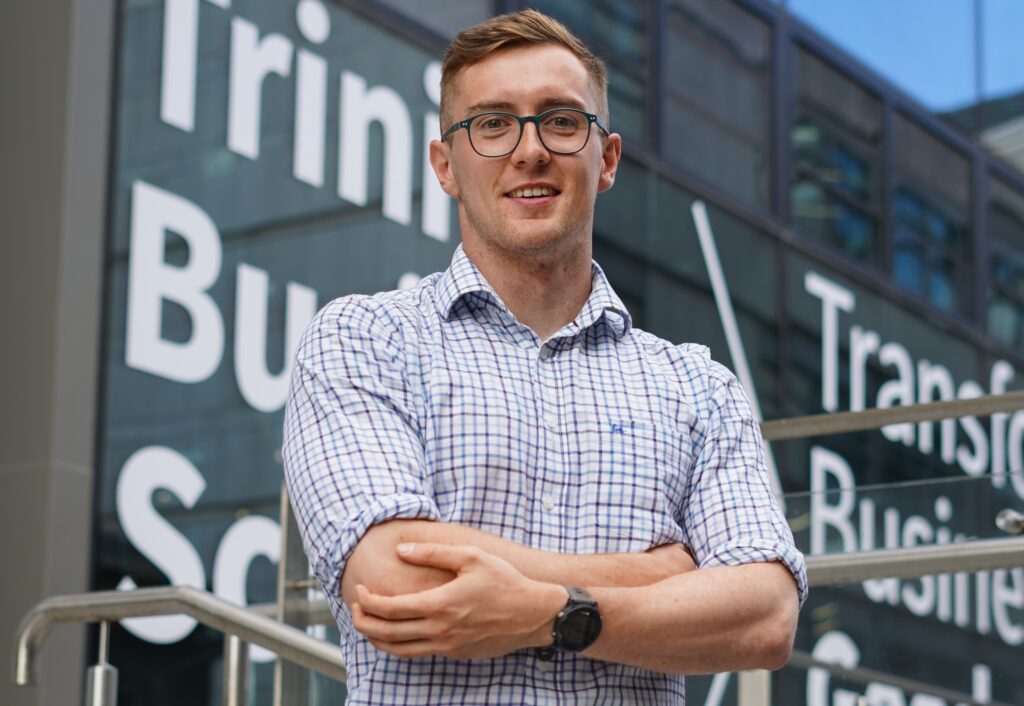Joseph Mooney, PhD, a researcher with Trinity College in Dublin is an EJWP participant with the 4th group and programme contributor-at-large. He is preparing to embark on a Marie Skłodowska-Curie postdoctoral fellowship with MIT in the United States and the University of Limerick, in which he will be looking at passive solar water purification and desalination technologies.
Joseph shared his takeaways from the EJWP4 Training Week in Athens last October and the value of development training for academics:
Can you describe your experience collaborating with EJWP4 in Athens?
Looking at the water sector with EJWP is a breath of fresh air. No one’s work alone will solve the energy water nexus; we are stronger when linked. I’ve enjoyed connecting and improving my own skills and communication. This is important and maybe sometimes overlooked in the academic sector. Having a non-academic take on communications to research is good. The takeaways from the EJWP4 Training Week in Athens with Phoebe Koundouri’s masterclass were thought-provoking in seeing the nexus of climate and SDGs for coming up with solutions in seeing the economic side, how if fits in policy and more.
Professional development is something new for me, and I enjoyed being trained by Jennifer Cronick. This is the first time I’ve opened up to discuss water goals for people to understand and provide insight on how to get there. It was nice. In Athens, Jennifer made me feel like I was being listened to and I think this can be lost and undervalued in some professional development. On conflict management and resolution, it was nice to see how individuals and others may perceive a conflict and how it fits into what really is. I see the need to look at the broader scope of the situation. Assumptions can block getting to a proper resolution. We realized the need to communicate at an early stage, to better know what each other is doing and make our own adjustments.
From my perspective, I’m a technician to develop sustainable methods to purify water. This was all I wanted to do. The week in Athens made me look at impacts of technology in geography and soci-economic factors on the right steps to get funding and deploy projects. I can think about if I want to become a collaborator or competitor with other actors in the sector. But we don’t want competition to get in the way of solving problems in delicate crises.
Why is it important for academics as well to have these interactions and learnings as experienced in EJWP?
Academics sometimes have tunnel vision and forget about the interdisciplinary aspects of their work. For instance, I used the word “nexus” before, but never put in practice. Interacting with EJWP has helped me put this in use, because I’ve seen that EJWP is working in the real sector through implementing concepts in the projects. This gives a us all view of the water sector in seeing how the infrastructure may change with geography. I’ve heard first-hand about challenges members are facing, and the solutions they brought in. Truly identifying the problems is a big step in this before reaching for a solution, and working in this friendly and professional environment is inspiring.
How do you view the importance of further development of skills for those already established in the workplace – or who have advanced degrees?
Upskilling, upskilling – you can never get enough. You may only be focused on technical side in a position, never really realizing how a completely different strategy or perspective can benefit your work. We all have plans, but never know what the future holds, so it’s better to be prepared in multiple ways, especially as academic opportunities can be staggered. Having time for development and bettering prospects is the right thing for me. Working on a PhD and being in closed academic environment, you may hear only your own voice way too much. It’s nice to have a space set aside for personal growth – and how can you help others if you can’t help yourself. It is better than just reading books!
What do you think are some future skills that should be developed now among early-career professionals?
The communication side still needs to be improved. Social outreach platforms need to be developed and used. Even though we have social media skills, they are not always being translated into professional benefit. It’s a changing world and we need to change. Another skill is the nexus way of thinking – perhaps a dedicated class on what nexus is and how to implement. I’m 25 years-old and just realizing the implications of nexus relations and ways of working.
Where are the most needed areas of cooperation in the water/environmental/research sector? And how can we boost helpful connections?
We do need to come together. EJWP is the first platform I’ve seen bringing like-minded people together the way it does, more than social media and conferences. It also brings value to the sector organizations if their time and resources are put toward this. We need to understand that there is a platform there to discuss and work on challenges, because institutions can be limited in many ways if they stick to their own framework.
What are your thoughts on young professionals and linking academics and their institutions for future development?
It is safe to say that youth are driving change, and it is for the better. Our future is in hands of young professionals and it’s important to link institutions to upcoming professionals. From an industrial perspective, linking to give them a stronger network to cope with challenges they face can build more confidence in their approach and ability to drive what is needed.

